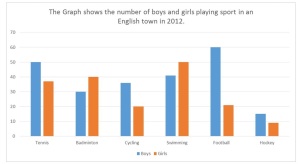IELTS listening practice for list selection which is a type of multiple choice.
A Museum Visit
Questions 1-3: Choose three letters, A-G.
What three things are not allowed to be brought into the museum?
A. camera
B. bags
C. food and drink
D. phone
E. pens
F. notebooks
G. coats
Answers
Click below to reveal answers:
AnswersA, C, D (any order). You must have all 3 correct for one point.
- A = ‘… won’t be able to take your camera into the museum…’
2. D = ‘…that goes for phones too’. This means that the same rule for cameras also applies to phones, both are forbidden.
3. C = ‘If you’re in need of refreshments, you’ll have to make your way to our cafe as you can’t bring your own inside’. Refreshments = food and drink (paraphrase)
The answer can’t be B because you are able to choose if you want to leave your bag in the locker room or not. This means it is not forbidden.
IELTS Multiple Choice Tips
This video offers more listening practice and tips for this type of listening in IELTS.
…………………….





